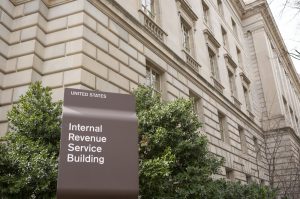
Legislation introduced by U.S. Rep. Peter Roskam (R-IL) to rein in IRS abuse of civil asset forfeitures in cases involving structured cash transactions gained House approval on a voice vote on Tuesday.
“Today, we took a big step toward delivering justice for victims of IRS abuse,” Roskam, the chairman of the House Ways and Means Subcommittee on Oversight, said.
The Clyde-Hirsch-Sowers Restraining Excessive Seizure of Property Through the Exploitation of Civil Asset Forfeiture Tools (RESPECT) Act, H.R. 1843, is named after three small business owners who had their assets seized in cases involving allegations of structuring.
The bill clarifies that the IRS can only seize assets under the Bank Secrecy Act (BSA) when there is reason to believe that the property was derived from an illegal source, or that funds were structured to hide a violation of criminal law.
BSA outlines specific reporting requirements for transactions greater than $10,000. Under cash structuring, business owners break up large transactions into smaller “structured” amounts to avoid those reporting requirements.
“It’s clear to everyone involved that the IRS and Department of Justice abused their authority and took money from people who did nothing wrong. With (Tuesday’s) legislation, we’re making sure they can never do it again. I want to thank the Clyde, Hirsch, Sowers and Taylor families for their bravery and willingness to share their stories in the hopes of preventing future injustice.”
In addition to clarifying that assets can only be seized when they’re derived from illegal sources or transactions were structured to hide violations of criminal law, H.R. 1843 would also enable property owners to request a hearing within 30 days. The IRS would also be required to make a good faith effort to find the property owners and to inform the owners of their post-seizure rights.
U.S. Sens. Tim Scott (R-SC) and Sherrod Brown (D-OH) introduced a Senate version of the bill.



